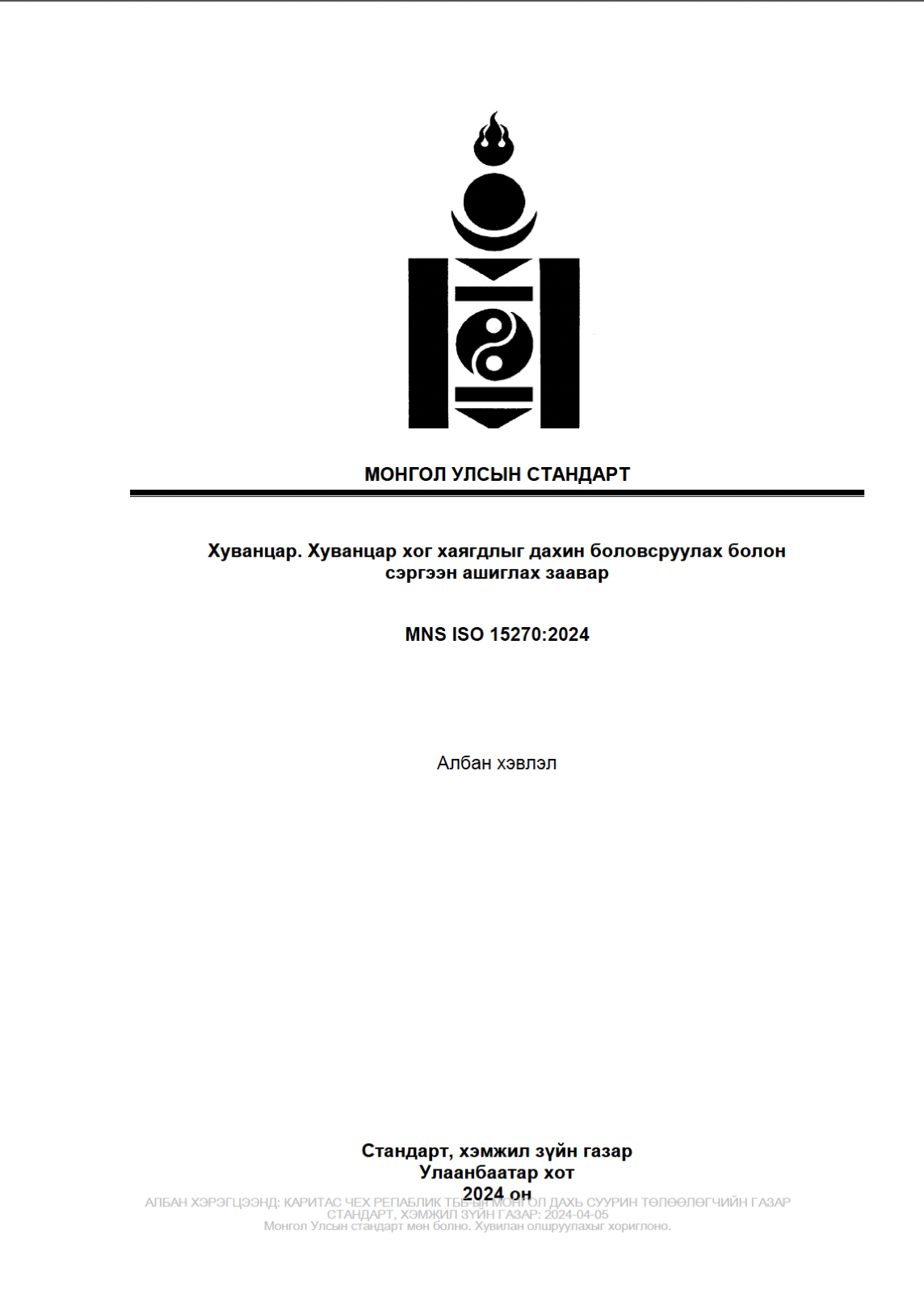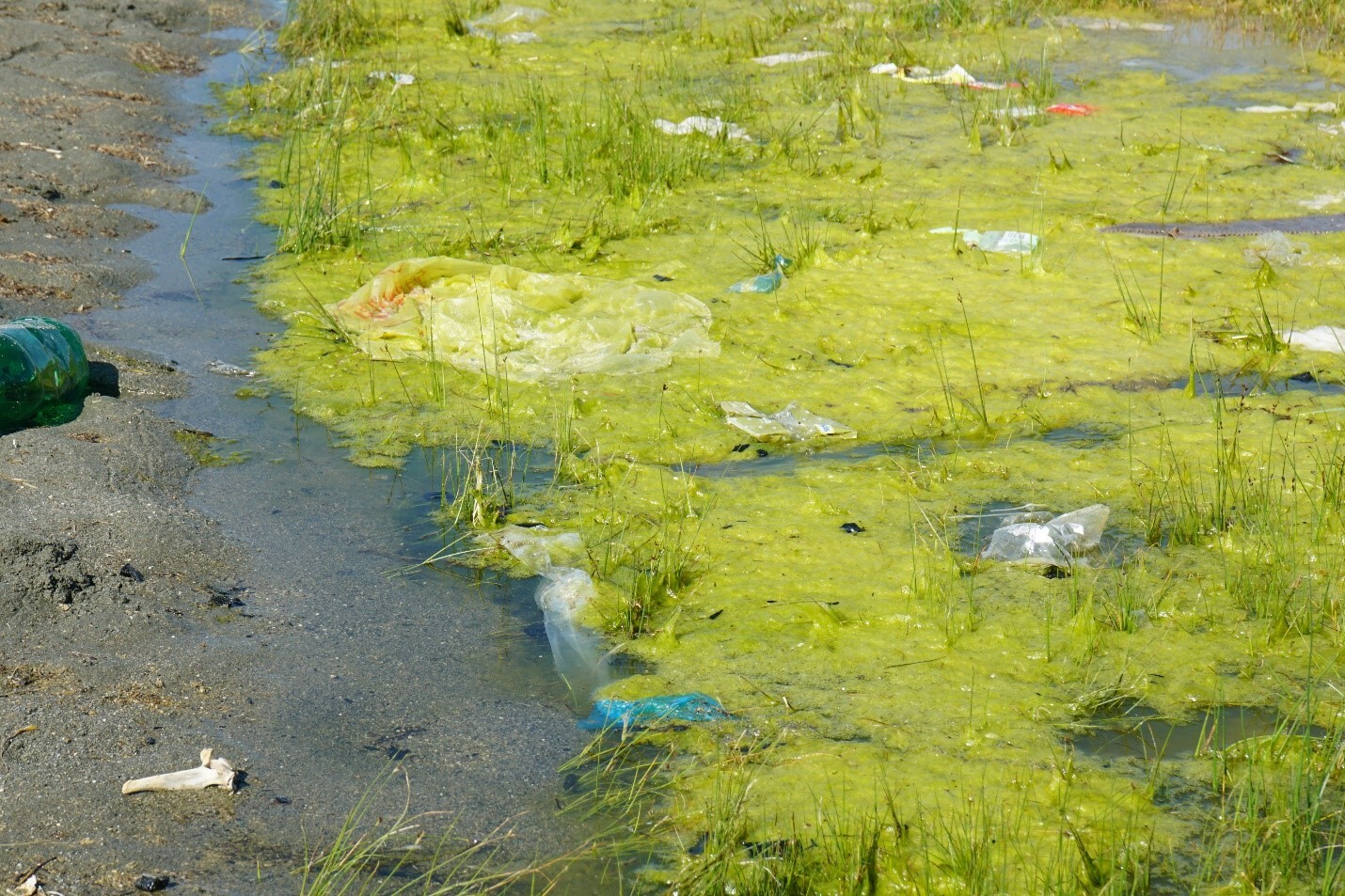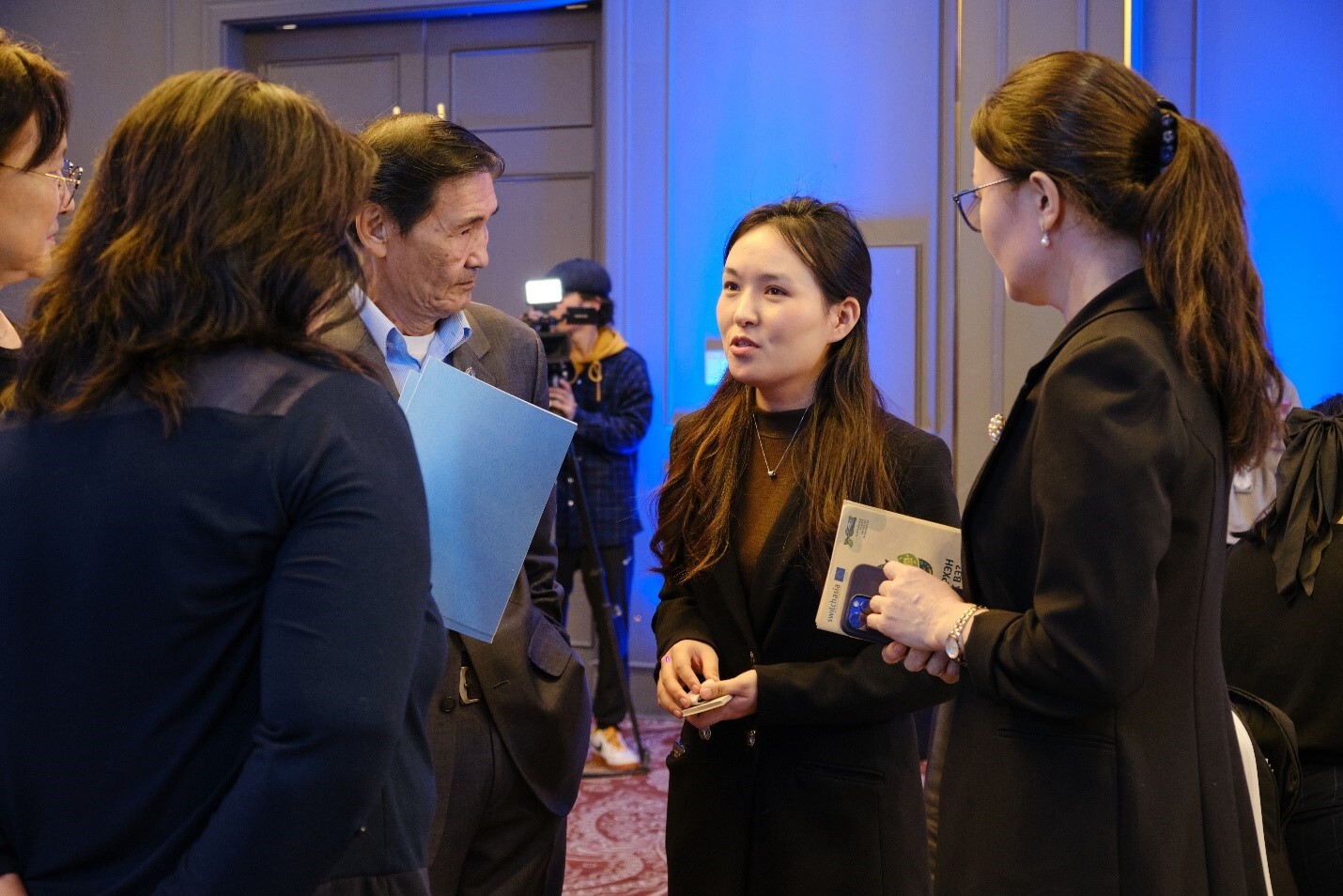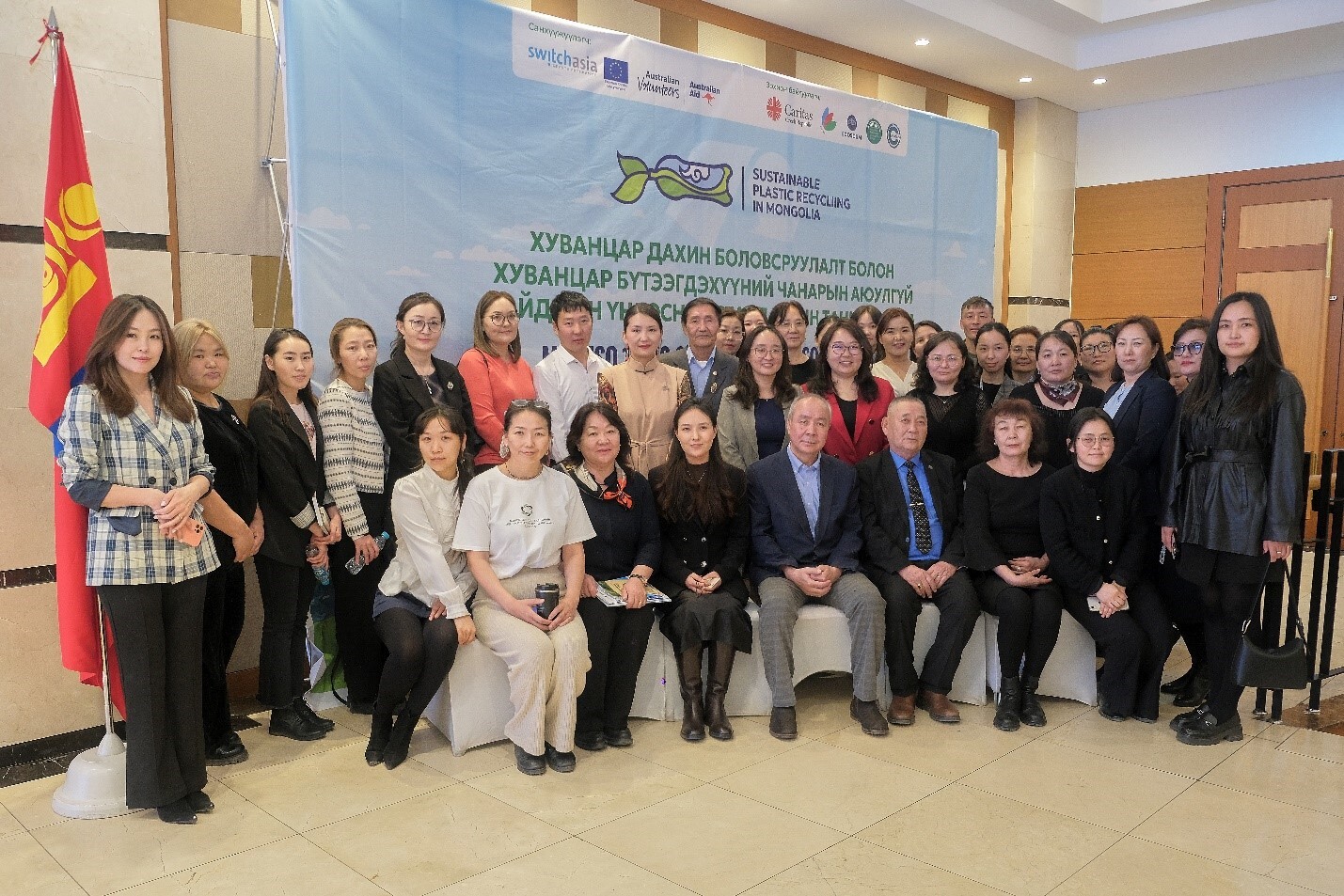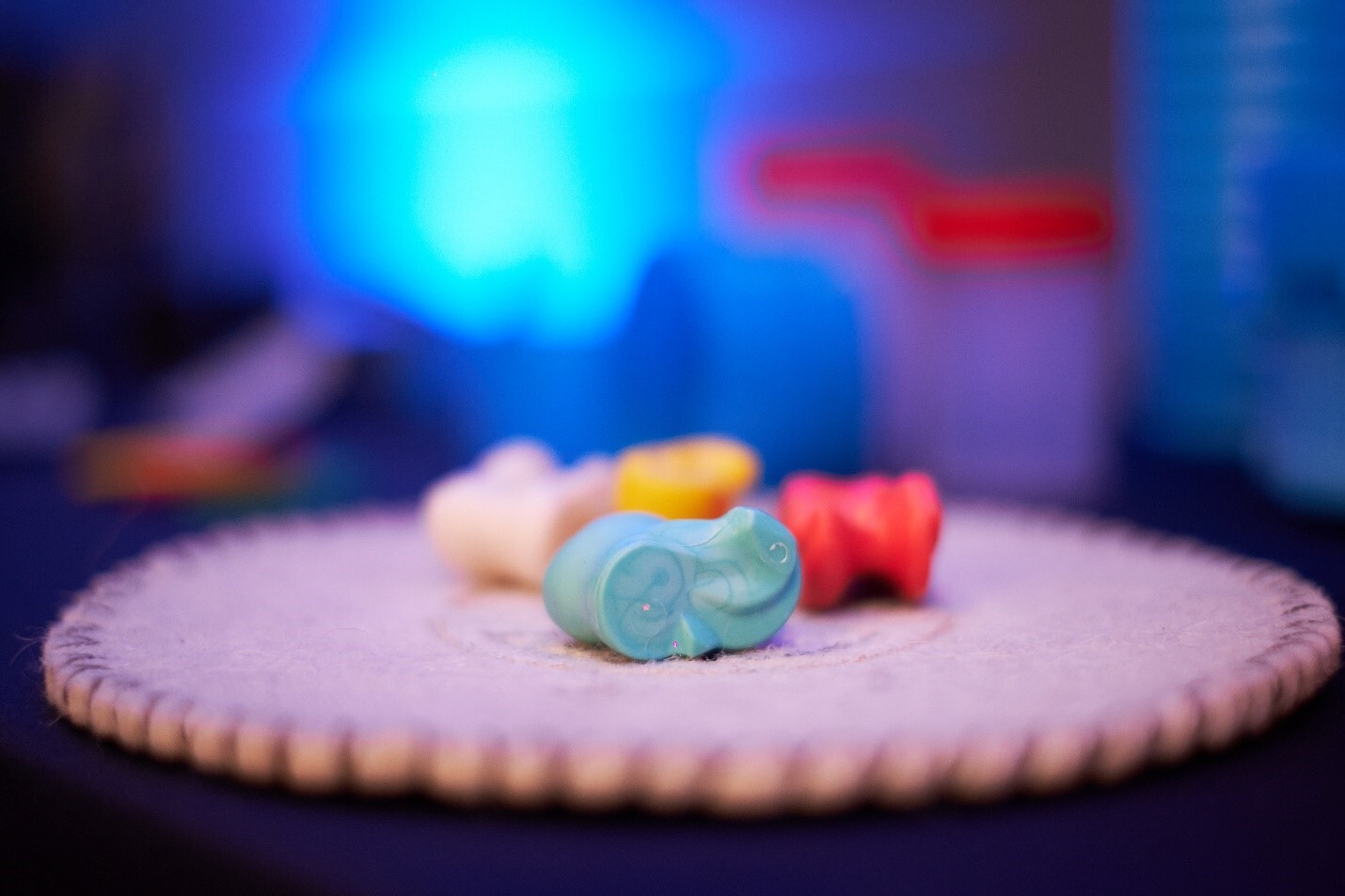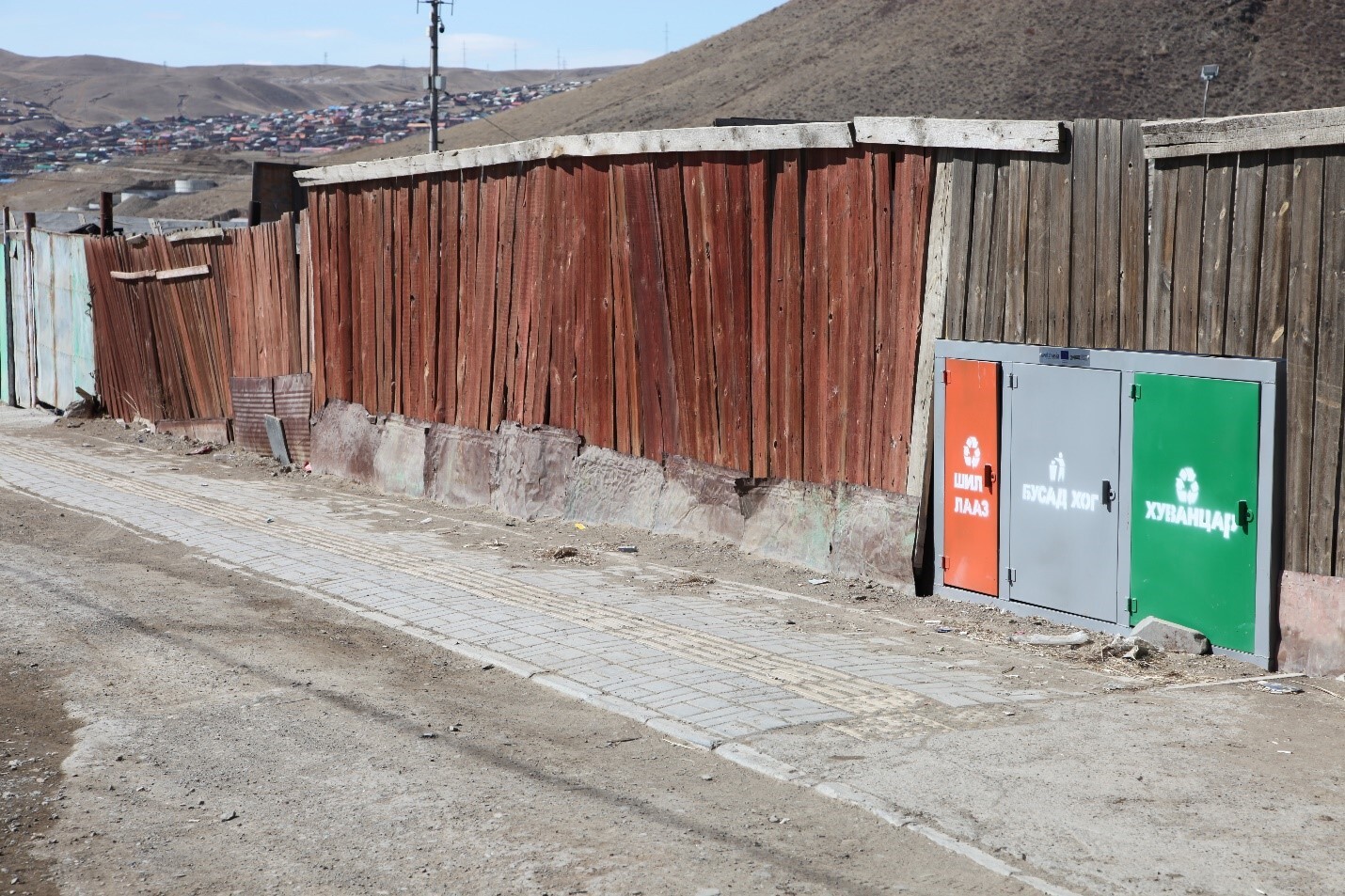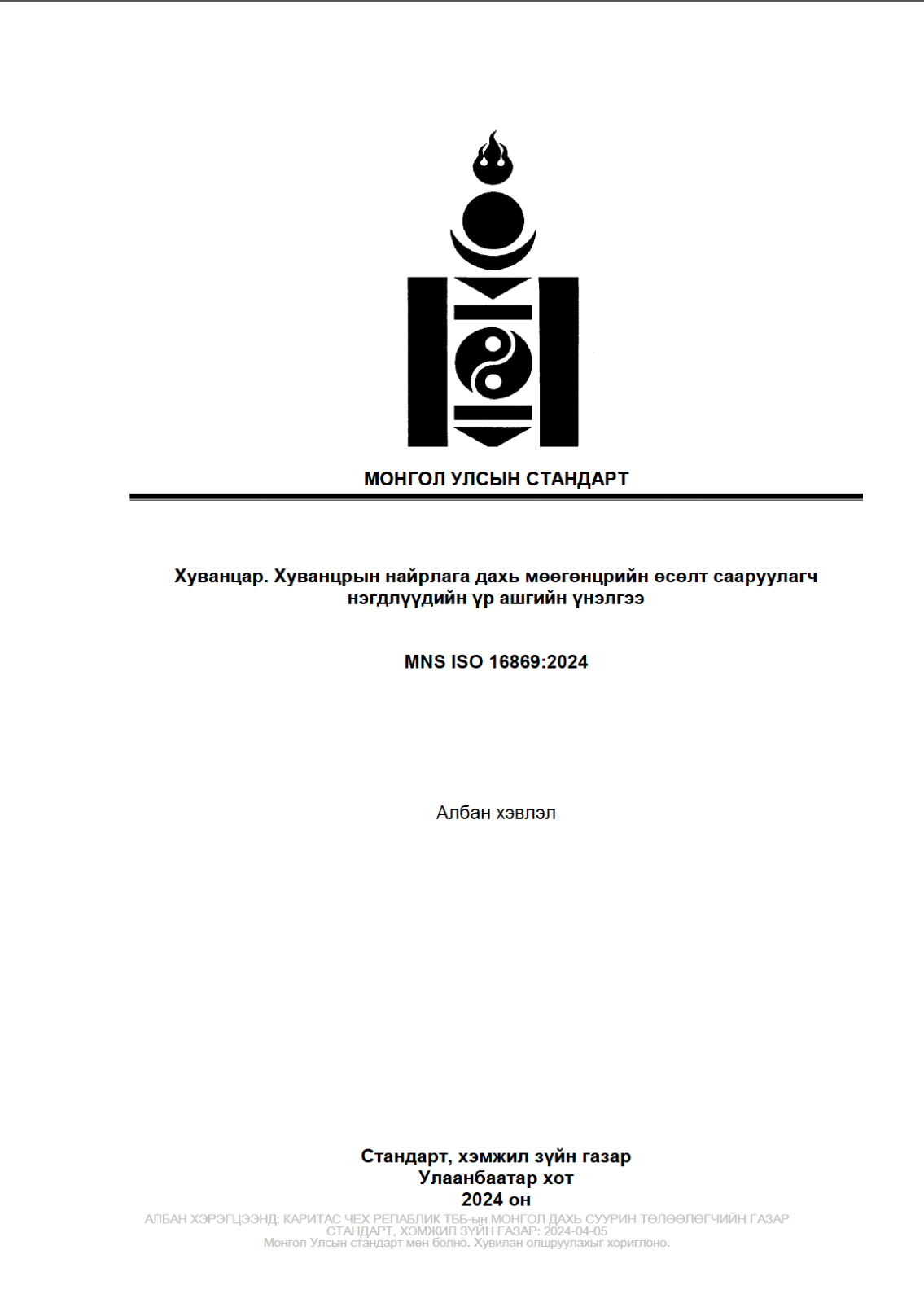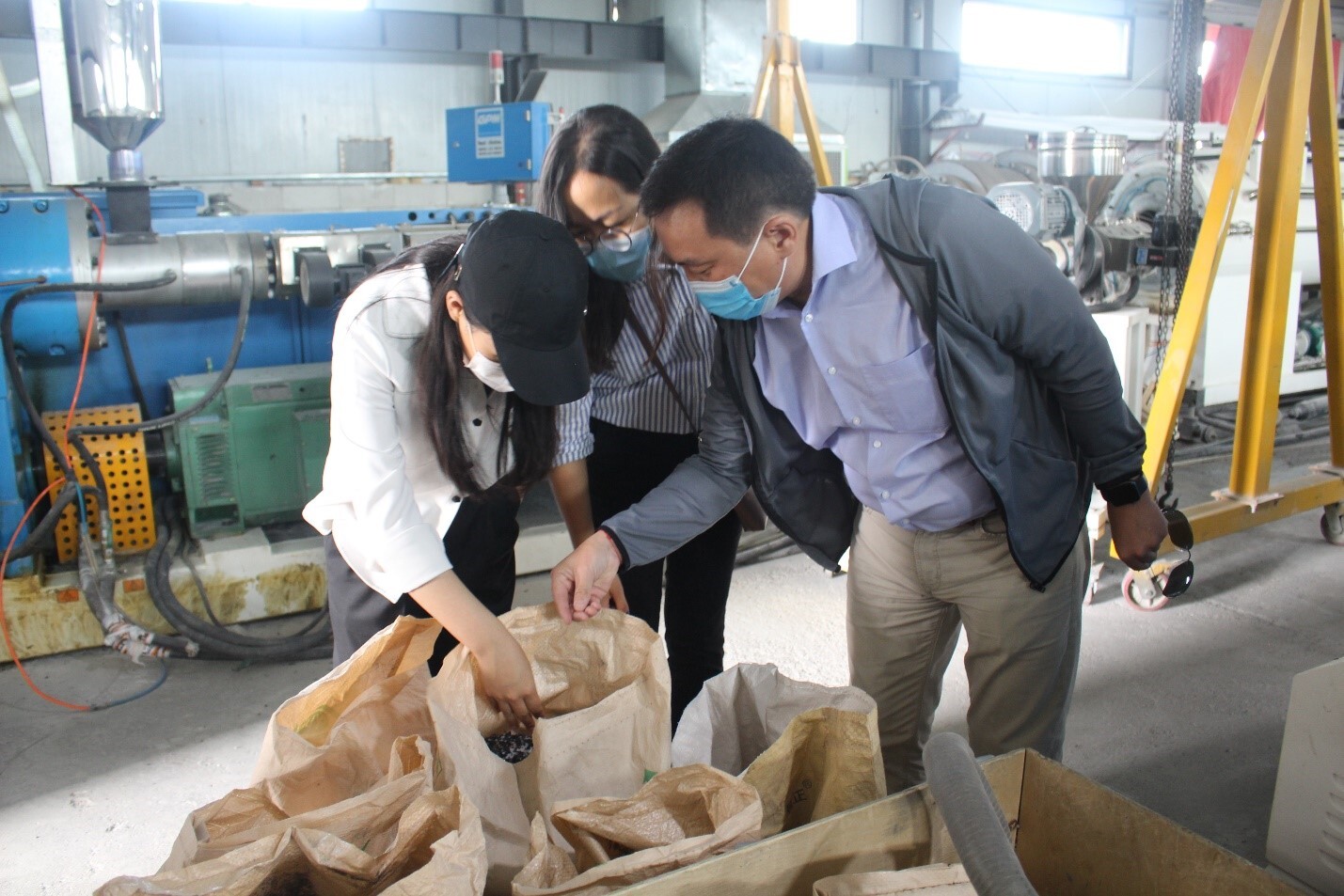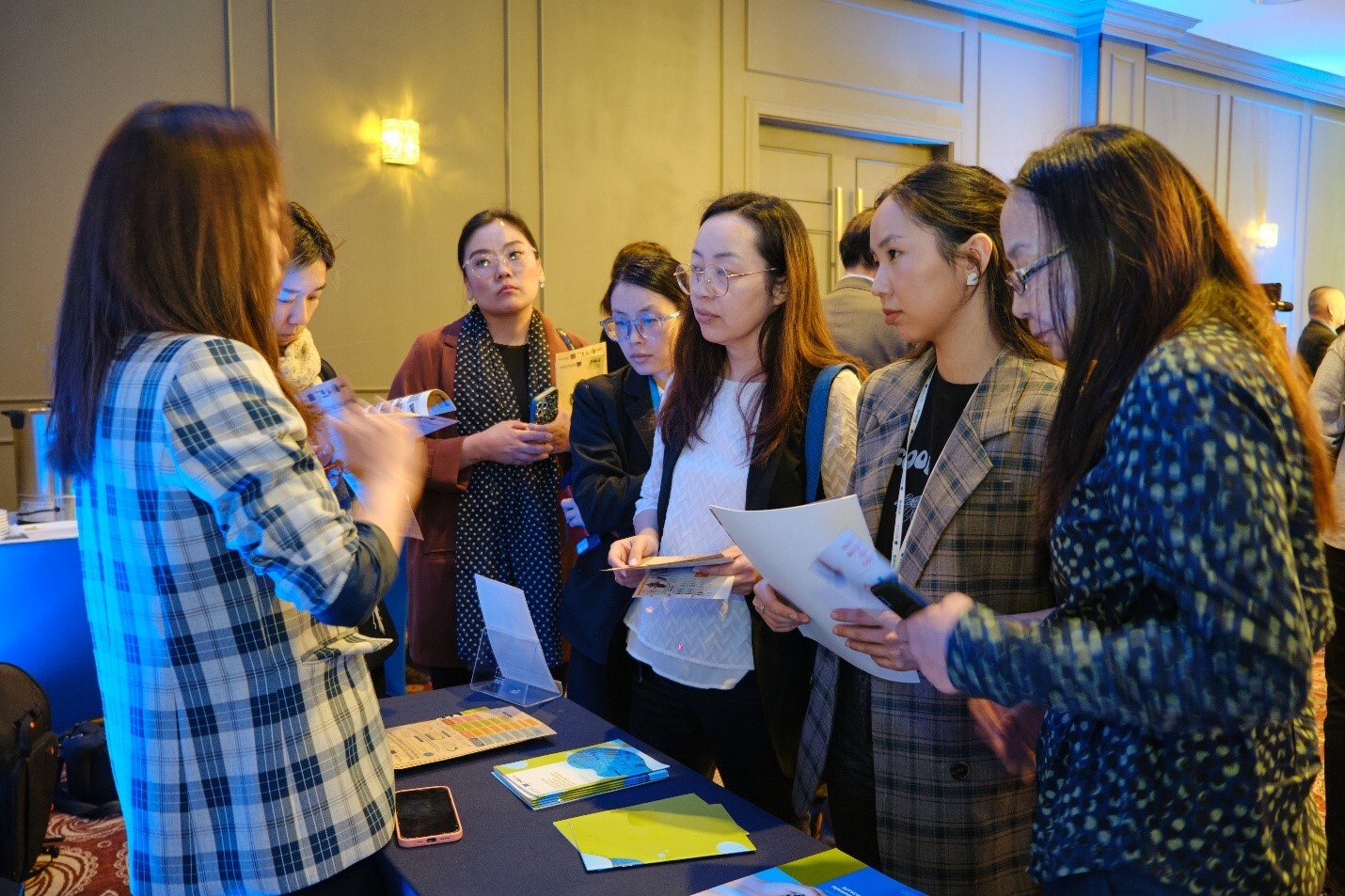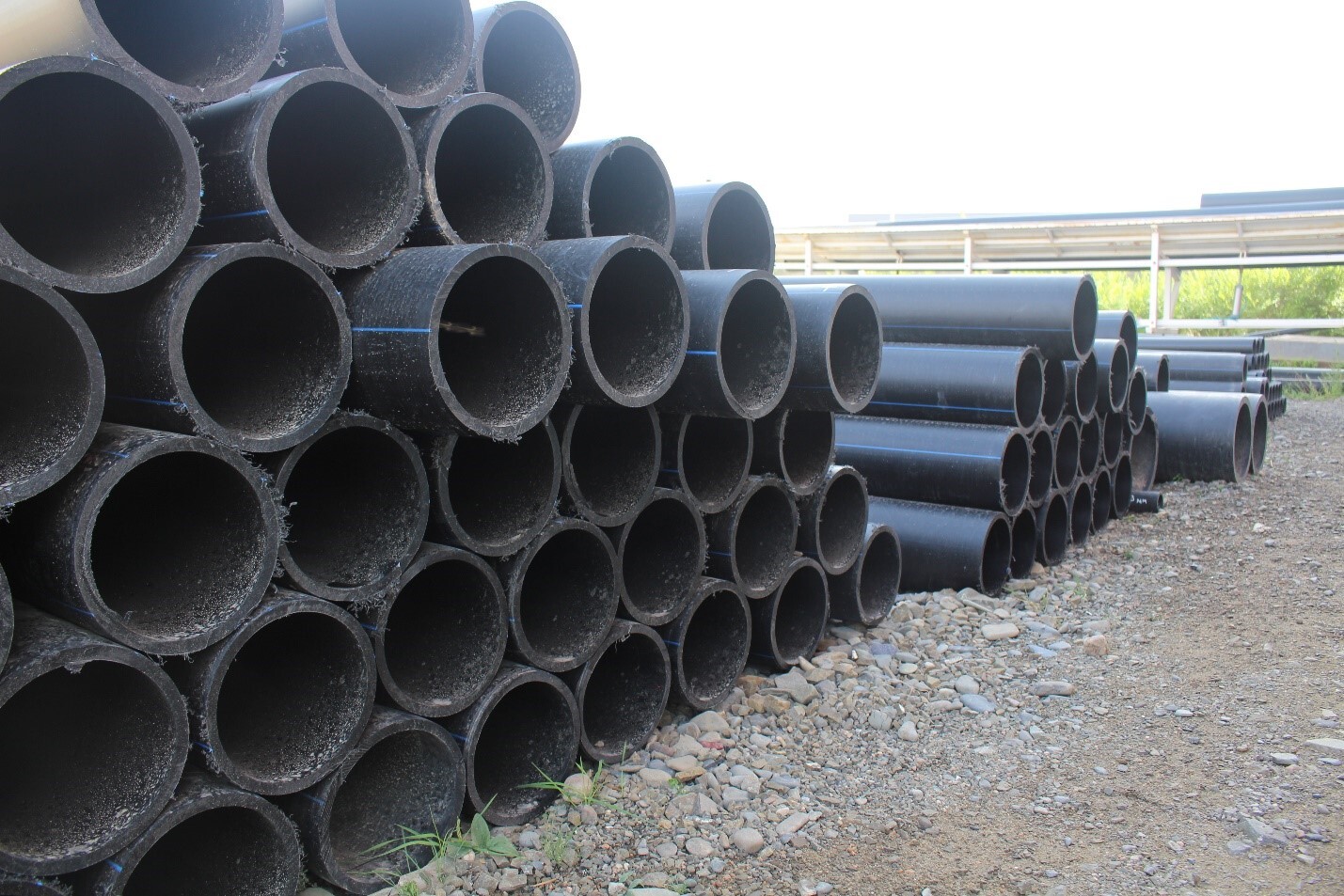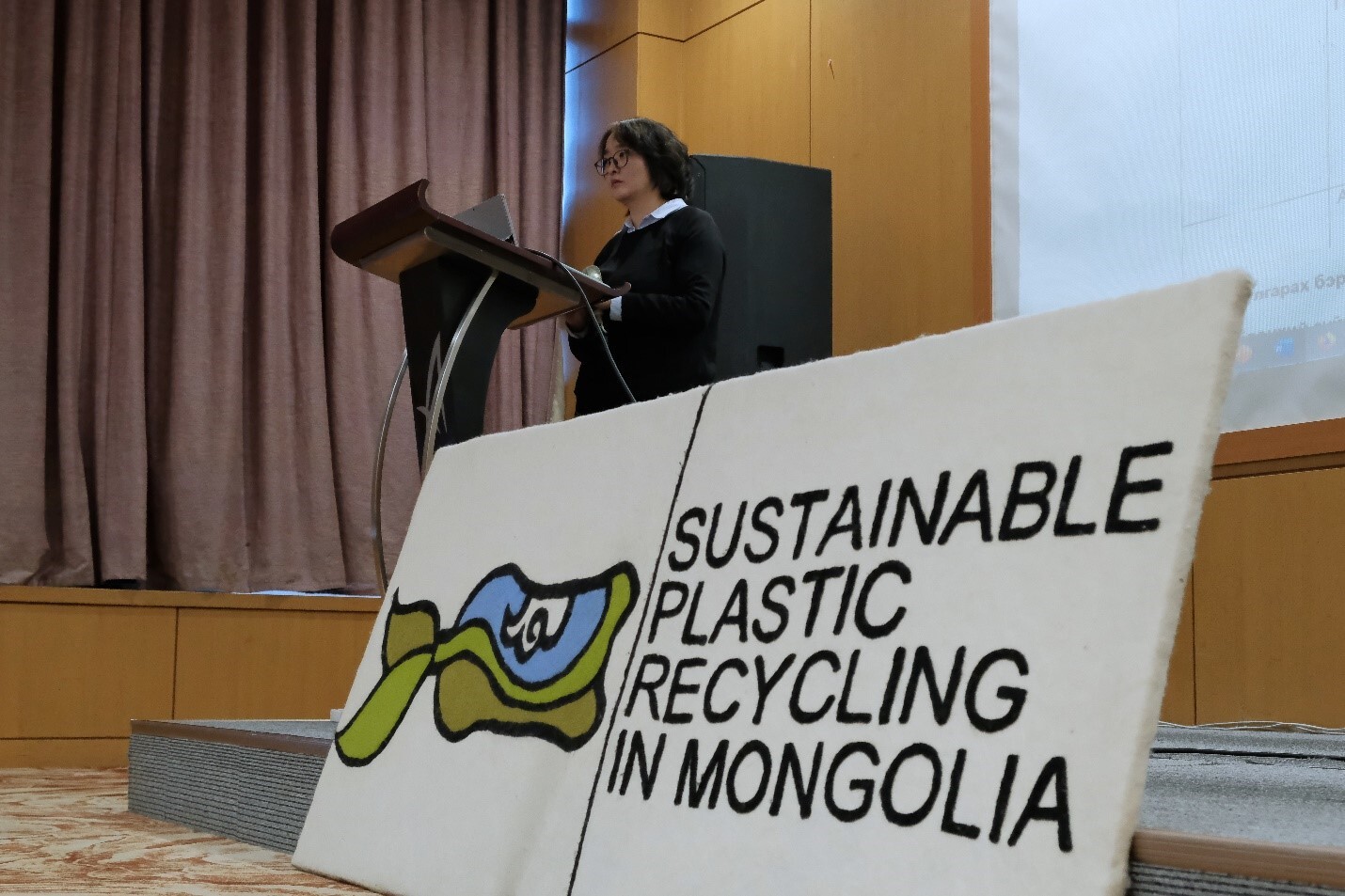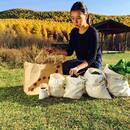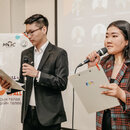Plastic recycling in Mongolia is a growing industry driving the nation towards a zero-waste future. Since 2020, plastic recycling companies have been working with the SWITCH-Asia funded Sustainable Plastic Recycling in Mongolia project to find ways to recycle more plastic and create new products made from recycled plastic.
Collaborating for a Cleaner Future: The Urgent Need for Better Plastic Recycling Standards in Mongolia
Despite their dedication, recycling small and medium businesses cannot solve this issue alone. In 2019, only 7% of plastic was recycled in Mongolia even though more than half of all waste sent to the dumpsite is recyclable. Plastic takes up to 500 years to break down, and as it does, it is leaving tiny, microscopic chemicals and plastic behind to find its way into the soil and groundwater. It is impossible to remove this kind of pollution, and it will continue for centuries to harm people’s health and the environment.
We met with plastic recycling companies to find ways to increase the quality and safety of recycled plastic so we can create more demand for recycled plastic. They wanted to adopt international standards that would help the industry make globally competitive products. One of those standards is MNS ISO 15270:2024 Guidelines for the recovery and recycling of plastics waste.
Chemical recycling: A game changer for difficult plastics
MNS ISO 15270:2024 Guidelines for the recovery and recycling of plastics waste outlines the process, methods, and technologies used to safely recycle plastics through mechanical, chemical, biological processes. Right now, all local companies are doing mechanical recycling, a simple process of cleaning the plastic and then shredding it into little pieces before melting it into little pellets to make new products. Mechanical recycling can be done in a finite number of times as the material property degrades during this process.
This new standard opens new doors for recycling in Mongolia with new methods to recycle plastics that cannot be recycled with mechanical recycling. Chemical recycling is one way to turn plastic waste back into a useful plastic product and is used for more difficult to recycle plastics like cling wrap. Chemical recycling breaks down plastic into its core building blocks, making it easy to remove contaminants like smells and colour leftover from its previous use. At the end of the chemical recycling process, the recycled plastic is almost identical to brand-new plastic. This makes it safer and easier to make into new products.
Over a year, we consulted with the plastic recycling companies and the Environmental Standardization Technical Committee at Mongolian Agency for Standardization and Metrology to discuss how the standards would be put into practice and any changes that should be made to make them more effective in Mongolia’s unique circumstances. In March 2024, our efforts were finally successful, giving recycling companies a new standard they can voluntarily adopt to show the public their product is safe and meets rigorous standards.
Community involvement: Key to successful plastic recycling
With the new standards on plastic recycling approved in Mongolia, the next step is to use them to displace even more polluting plastic. Since plastic is made from oil, every piece we recycle reduces greenhouse gas emissions and stops plastic from polluting our environment. Plastic recycling companies can now begin putting the standard’s process into their business and create a wide variety of improved products.
We, as the community, have 2 really important roles to play. Recycling companies depend on us recycling plastic to be able to make all their products. The new standards outline improved sorting and collection methods, so they will soon be ready to recycle even more plastic from us. To find where you can get involved in the movement and take your sorted waste, check out this guide we made that includes all the plastic collection points across Ulaanbaatar.
The second thing we need to do is support with our purchase. Buying products made from recycled plastic supports the growing recycling industry and shows big companies that we want sustainable packaging. Big companies are responsible for most plastic waste, and we need them to see that we are ready to buy products made with sustainable packaging.
Together we each have our part to play to create a nation free from waste.
The MNS ISO 15270:2024 standard can be purchased from the Mongolian Agency for Standardization and Metrology (MASM) at this link.
Compilation of a plastic recycling study and a brief introduction of 2 newly adopted plastics standards can be downloaded free from this link.
Ensuring quality and safety: The role of MNS ISO 16869:2024
While many recycling companies go above and beyond safety and quality needs to make their sustainable products, in Mongolia there are few adopted international standards to guide this and distinguish companies who have rigorous safety and quality processes and those who do not have them. Recycling companies recognise this and want consumers to know that their product is safe. That is why they have been working with the SWITCH-Asia funded Sustainable Plastic Recycling in Mongolia project.
One thing that can impact the quality of plastic products is actually pretty surprising. Fungi is amazingly adaptable when it comes to finding new places to grow and things to eat. However, one place that we do not want fungi growing is within plastic products. When fungi grow on plastic, it might not be obvious just by looking at it. The plastic loses some of its strength, and the safety of any products inside cannot be guaranteed.
Plastic recycling companies in Mongolia know about this issue and already take actions to make sure their products are safe. When we were exploring ways to create new recycled products, they said that having an international standard that outlined how to test the efficacy of fungistatic ingredients to stop fungal growth would help their product development.
Over a year, we met with the plastic recycling companies and the Environmental Standardization Technical Committee at Mongolian Agency for Standard and Metrology to discuss how the standards would change current processes and any changes that should be made to make them more effective in Mongolia’s unique circumstances. In March 2024, our efforts were finally successful, giving recycling companies a new standard they can voluntarily adopt to show the public their product is safe and meets rigorous standards.
Adopting these standards is a major step forward for companies looking to buy strong, resilient, food-safe recycled plastic products. We as the consumer can also feel confident that the recycled plastic product we are using does not have harmful fungus growing inside the plastic. This is especially important for Mongolia considering that so much of us reuse plastic bottles for drinking water.
Now that the standards are adopted, it is up to companies to have their process certified by the state. We as consumers can support the companies leading recycled plastic quality and safety by looking for MNS ISO 16869:2024 on the locally produced recycled products we love.
The MNS ISO 16869:2024 standard can be purchased from the Mongolian Agency for Standardization and Metrology (MASM) at this link.